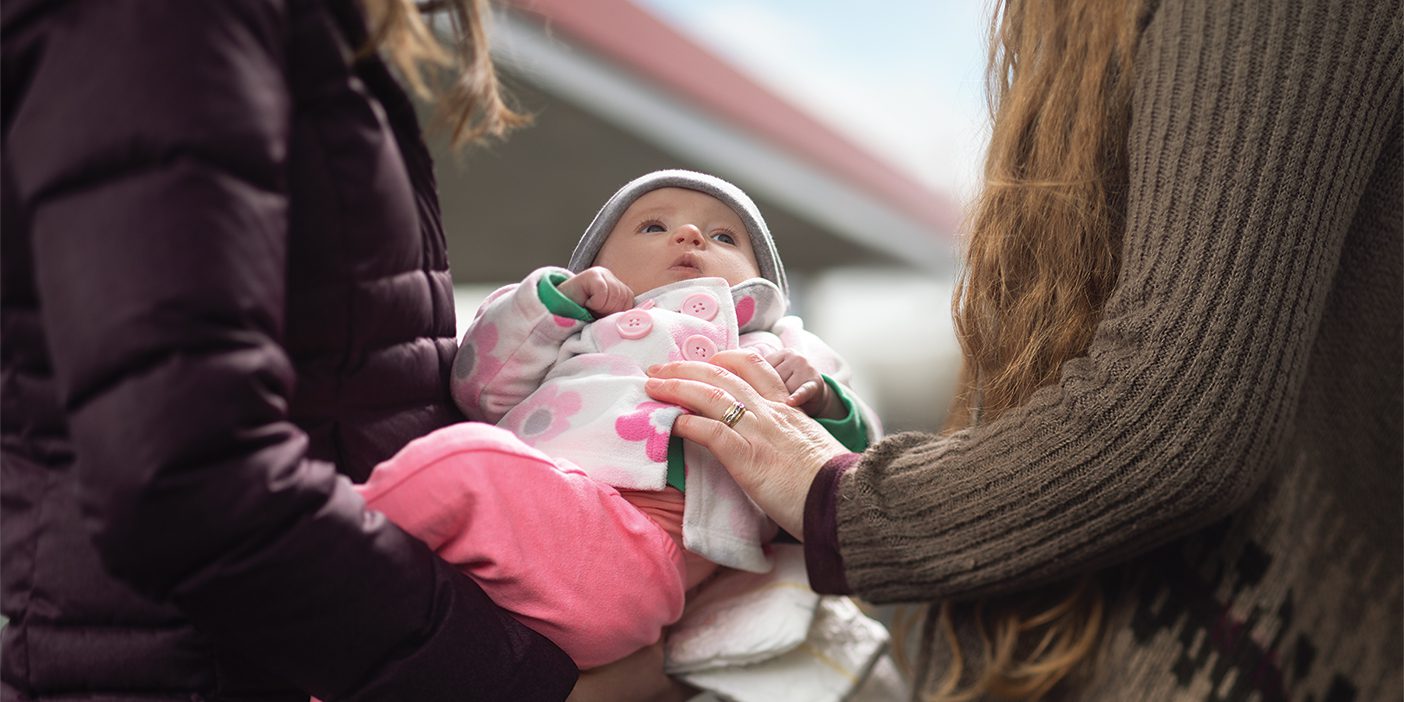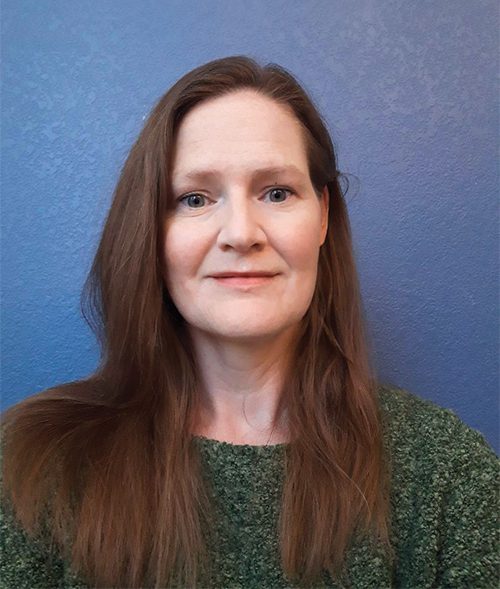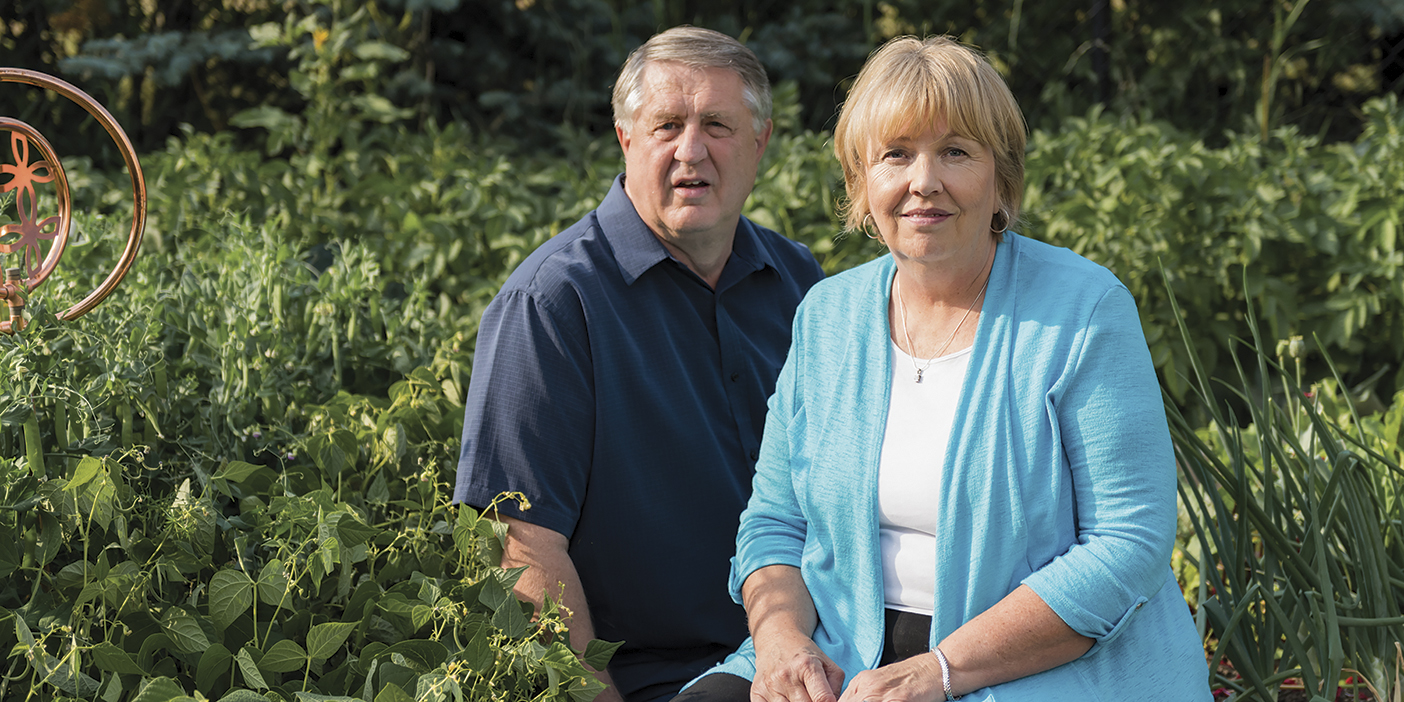Some relationships transcend simple words.

Amelia was our gas-station baby. Usually caseworkers deliver kids coming into foster care to our door, but that evening the caseworker had another crisis to attend to so we met at a Conoco off the interstate. As a rush-hour driver honked from the off-ramp, the worker handed me a tiny baby and a few diapers. I wondered if the people pumping gas were suspicious of this transaction happening beside the car wash.
At not quite 8 pounds, Amelia seemed too quiet and her solemn, brown eyes, too knowing for her three months of life. We all fell in love with her immediately. About six months later, her father came to our house, loaded all the clothes and gear a baby acquires in just a few months (a surprising volume) into the back of his truck, and took her home. English lacks any word for a former foster child who has returned to her parent, so I still think of Amelia as my gas-station baby. I wonder if the my is a liberty. In a way, she was never mine. In another sense, she always will be.
Our language also has no word to describe my adopted daughter’s biological brothers’ adoptive mothers. Instead I must use this protracted and confusing string of adjectives, plurals, and possessives to refer to them. But perhaps this moniker is fitting for the women who were waiting at the end of two boys’ protracted and confusing journey to find a family to belong to. I have no legal relationship to these women. We aren’t connected by blood or marriage. We have little in common except that we love children who love and need each other. Now I see these moms more often than any of my siblings. We coordinate schedules for playdates and plans for holidays. I have a lifelong connection to them but no word to describe that bond.
Since we became a foster family almost six years ago, finding the right language has often been puzzling. For example, what do I say to the grocery-store clerk who asks, “Which ones are your real kids?” I want to say, “None of them are imaginary,” but I decide against embarrassing a stranger who means no harm. “They are all real and all mine,” I say. Or how should I respond to the boy on the playground who asks, “Why is your son Mexican?” I say, “Actually, he’s Lakota.” My reply doesn’t address the boy’s curiosity, but it does keep him from asking more questions.
Even words I used to trust and take for granted have become, at times, problematic. Should I discourage a 2-year-old from calling me Mom when all the other children in our home do? I know it will chafe the already-raw feelings of the woman who gave birth to him and wants so desperately to have him come home. But I also know this little boy wants and needs to feel that he belongs in my family no less than any other child in my home. Besides, for a 2-year-old, mom is as much a job description as a term of endearment.
Sometimes the words I know I am supposed to use feel insufficient. Biological mother or birth mother are the preferred terms for the genetic, female parent of a child who has been adopted or placed in foster care, but those terms seem to reduce this woman’s role to merely providing an egg cell or surviving labor. My daughter’s birth mom |carried her for nine months, eagerly awaiting her first daughter. She waged a battle unlike anything I have ever experienced to stay substance-free during pregnancy. She tried to parent three demanding children while coping with mental illness and poverty. And she was devastated when it wasn’t enough. I refer to her as my daughter’s “first mom.” It seems more honest, if still inadequate.

When my husband and I were married almost 25 years ago, we created a forever family. Since then we have learned that sometimes family isn’t forever, but it is still family. And that the heart can understand things we have no words to say.
Rachel Bithell is a former physicist, full-time parent, and freelance writer.
Share a Family Story
In Letters from Home BYU Magazine publishes essays by alumni about family-life experiences—as parents, spouses, grandparents, children. Essays should be 700 words and written in first-person voice. BYU Magazine will pay $350 for essays published in Letters from Home. Send submissions to lettersfromhome@byu.edu.












